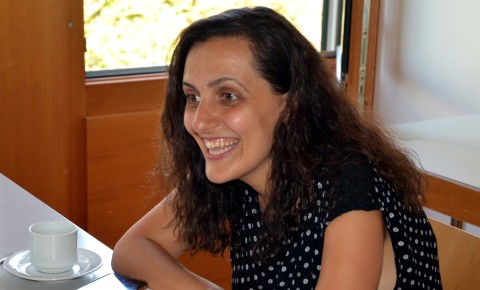Syrian migrants build bridges with Swiss church
Anna Shammas and Rami Ziadeh are founders and pastors of an Arabic-speaking United Methodist congregation that reaches out to other migrants—and to the German-speakers in the church.

Anna Shammas was homesick and lonely on a subway in Switzerland in 2002. A migrant from Aleppo, Syria, she was wary when another passenger began to draw pictures and talk to her two-year-old daughter.
When the Swiss woman learned that Shammas was a Christian, she invited her to worship, drawing a map to the United Methodist church in Aarau. At the time, Shammas was “without a friend, without language skills, without security, and most of all without God.”
Today Shammas, 38, and her husband, Rami Ziadeh, 43, are founders and ordained leaders of the Arabic-speaking United Methodist congregation in Aarau. It gathers 70 to 80 Christians from Syria, Egypt, Jordan, Palestine, and European countries—as well as some from the Muslim faith.




